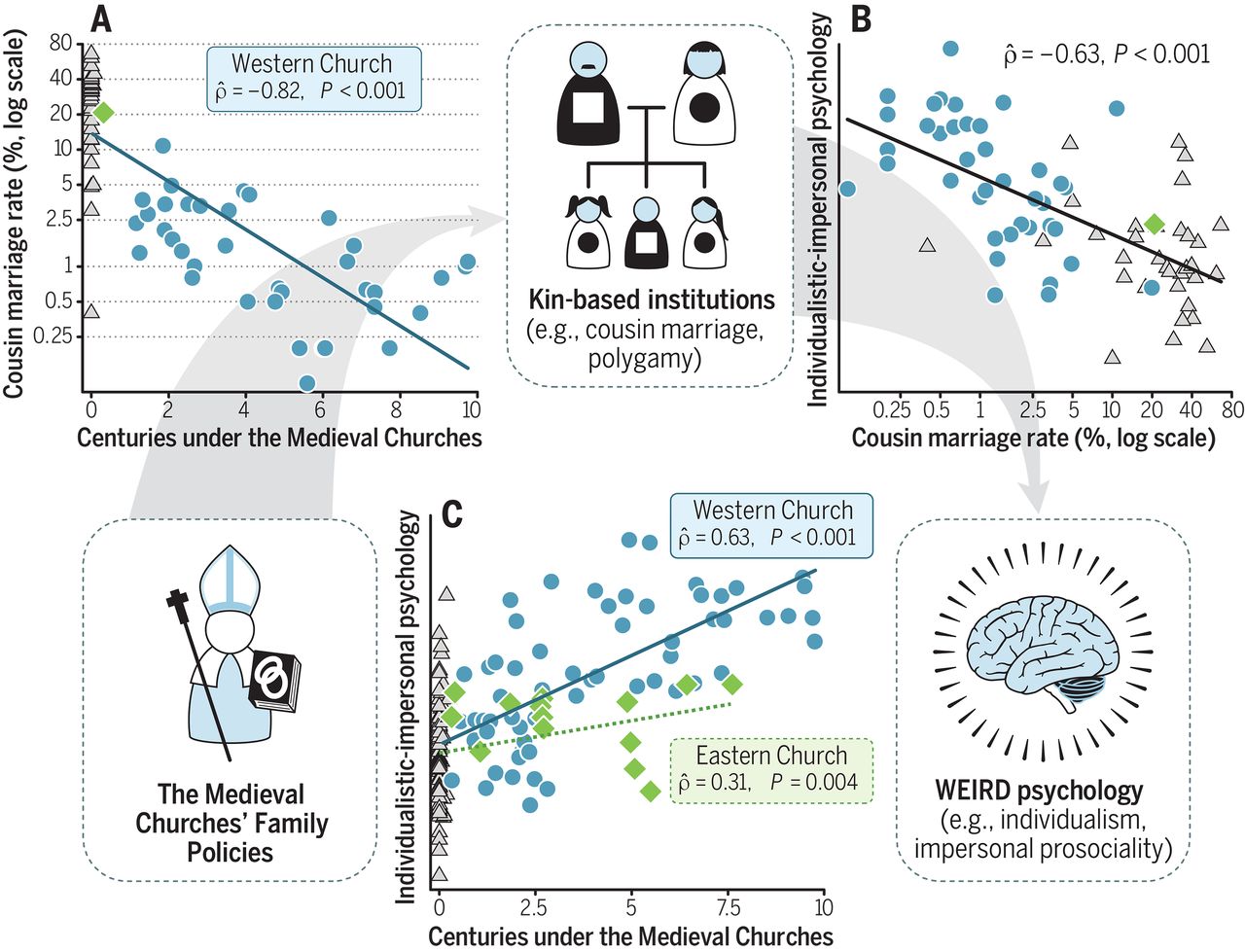Project Overview
What factors promote liberty and free markets? Why did representative governments, impartial laws and impersonal markets first develop and proliferate in medieval Europe?
In this project, we’ll explore the hypothesis that the successful diffusion of these political, legal and economic institutions is strongly influenced by people’s social organization, and particularly their family structure. Unconstrained by the demands of strong kin-based institutions (such as the clan, polygyny, or kin marriages), individuals develop a more individualistic psychology. This new way of thinking fosters not only greater liberty and freer markets, but also democratic societies built around individual rights.
Our previous work (1) (2) (3) has linked the Medieval Catholic Church’s regulations on marriage – their marriage and family program – to weak kin-based institutions (dominated by the neolocal nuclear family) and a more individualistic-impersonal psychology in the contemporary world (see figure below).

In this project, we’ll construct several novel databases. Large-scale corpora on historical texts will allow our interdisciplinary team to capture psychological change and the transformation of the family stretching over centuries all the way back to Antiquity. By tracing psychological change over time through computational linguistic methods this project will make inroads to the nascent field of historical psychology, a field that seeks to explain contemporary, cross-cultural psychology variation by first understanding temporal changes in psychology (4).
In addition, we’ll explore how family organizations impact people’s psychology, innovation, and prosperity in the contemporary world. We’ll design laboratory experiments, lab-in-the-field experiments, conduct anthropological field, and use genetic, and anthropological data, and satellite imaginary (5) to explore these questions.
1. Schulz, J., Bahrami-Rad, D., Beauchamp, J., Henrich, J. (2019). The Church, intensive kinship, and global psychological variation. Science. Link. PDF.
2. Henrich, J. (2020). The WEIRDest People in the World. Farrar, Straus and Giroux.
3. Schulz, J. (2022). Kinship Networks and Institutional Development. The Economic Journal. Link. PDF.
4. Muthukrishna, M., Henrich, J., Slingerland, E. (2021). Psychology as a historical science. Annual Review of Psychology, 72, 717-749. Link. PDF.
5. Bahrami-Rad, D., Beauchamp, J., Henrich, J., Schulz, J. (August 25, 2022). Kin-Based Institutions and Economic Development. Preprint available at SSRN. Link. PDF.